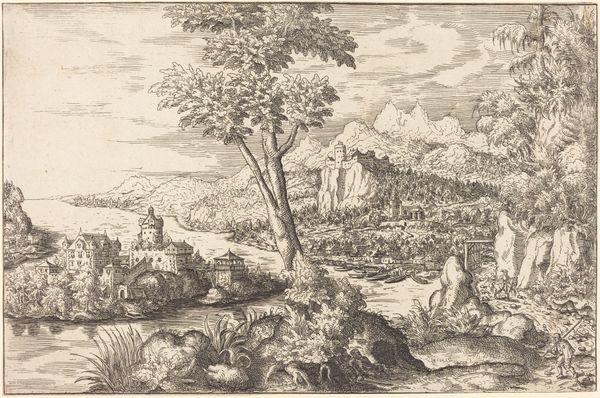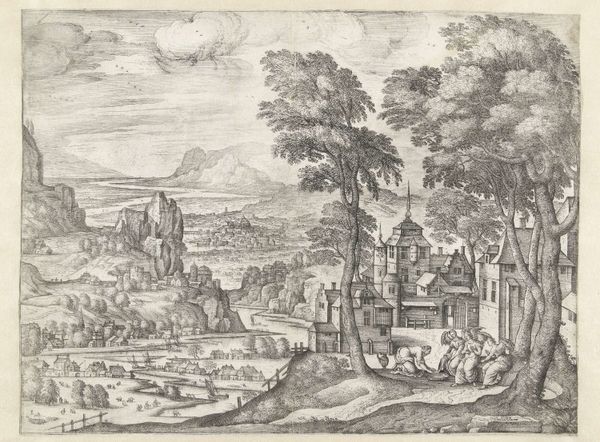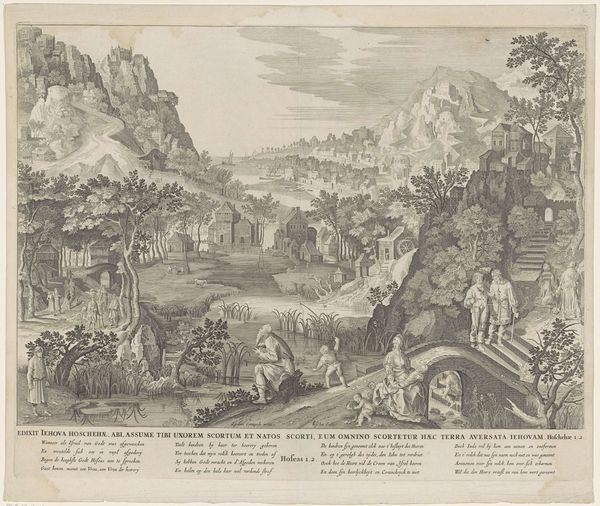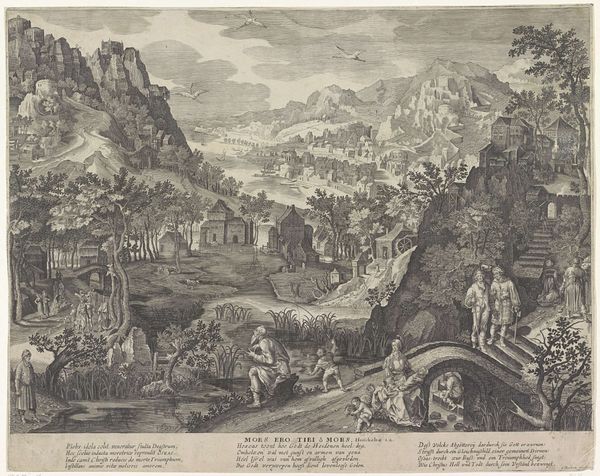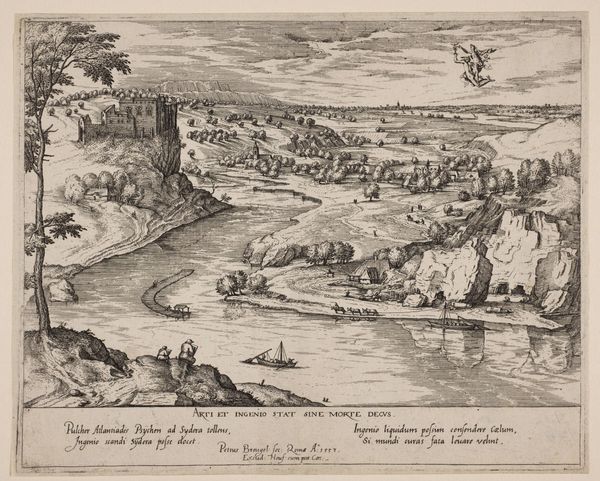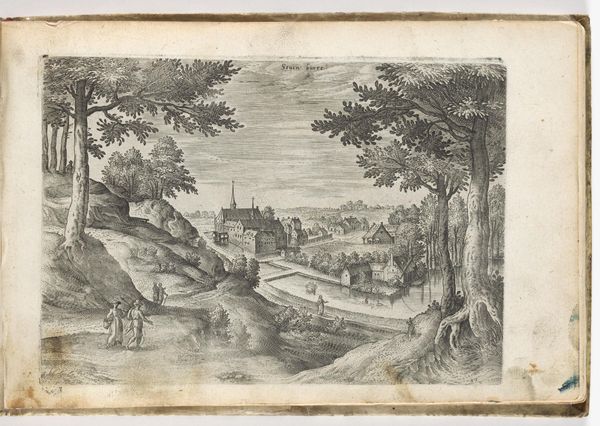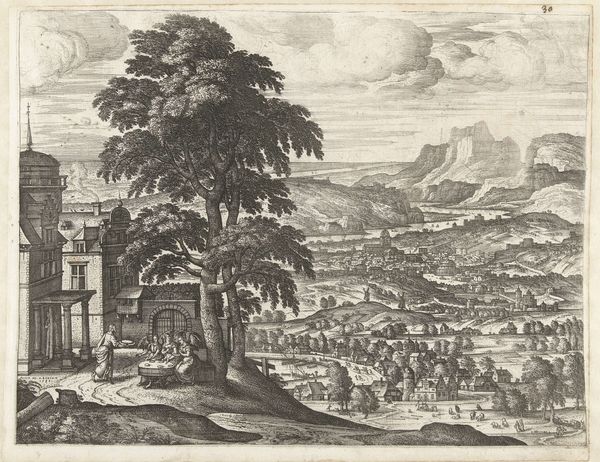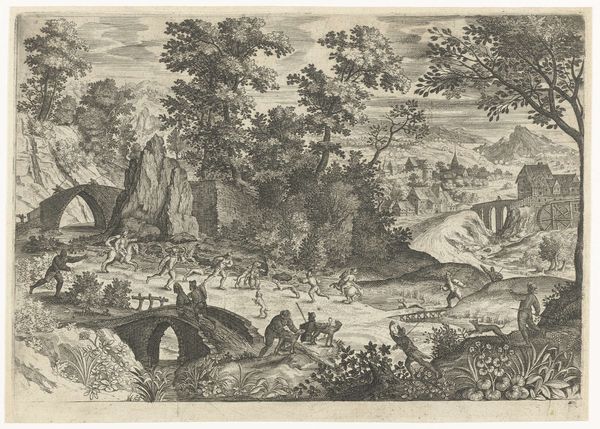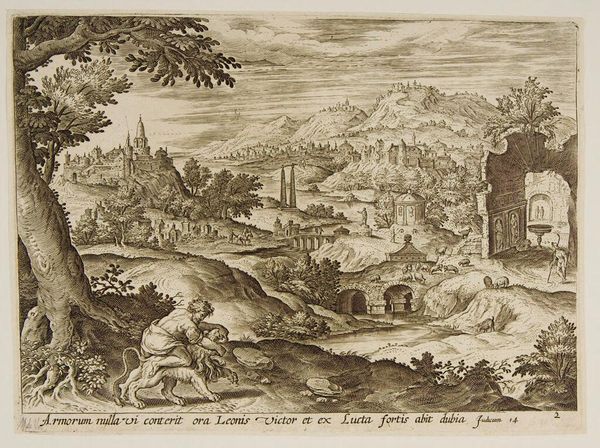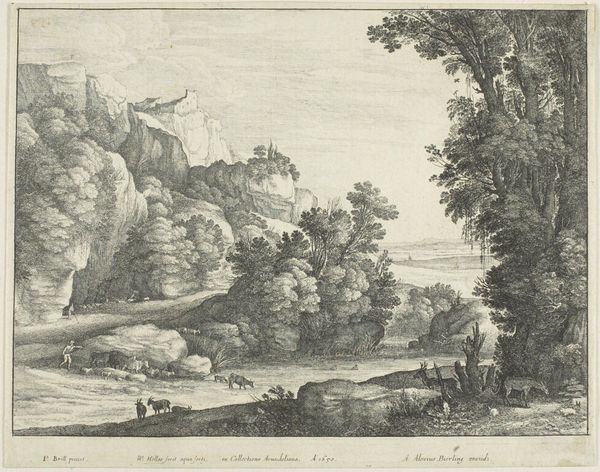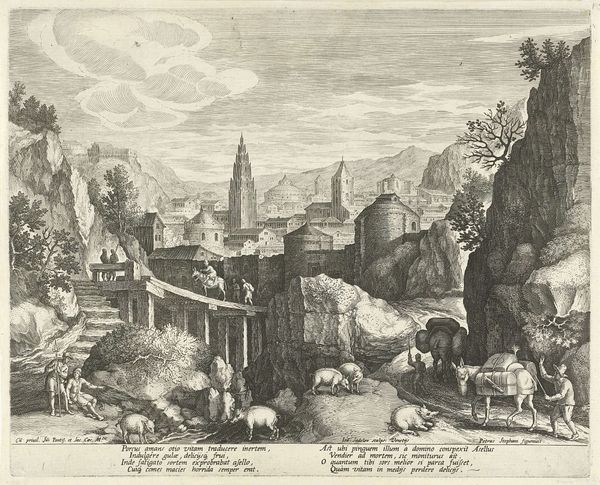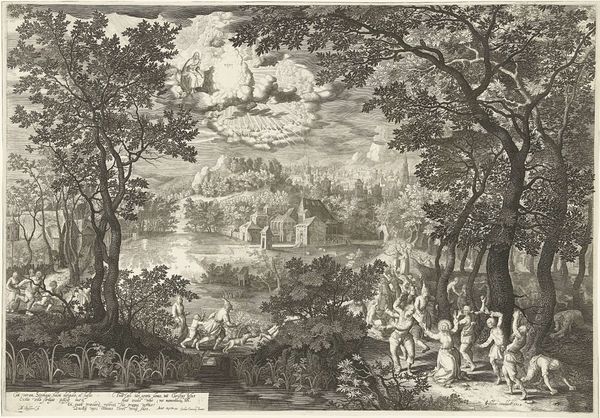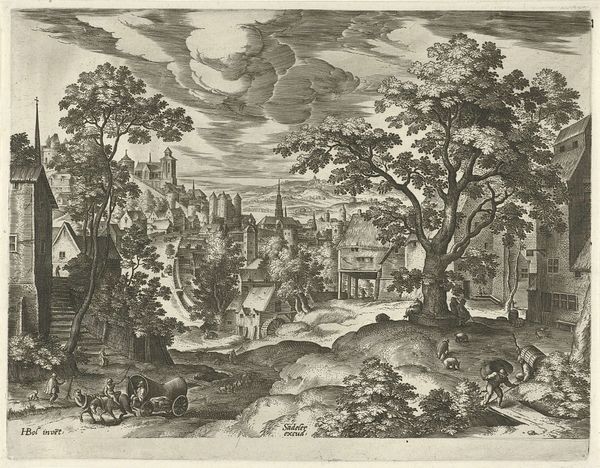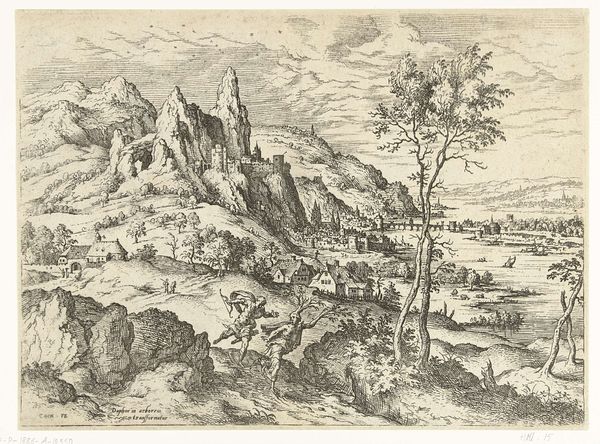
print, engraving
#
ink drawing
#
medieval
#
pen drawing
# print
#
pen illustration
#
landscape
#
figuration
#
line
#
history-painting
#
northern-renaissance
#
engraving
Dimensions: height 208 mm, width 286 mm
Copyright: Rijks Museum: Open Domain
Editor: This is "Tobias and the Angel Catching the Fish in the Tigris," a print by Hendrick Hondius I from around 1600. The intricate lines immediately give the impression of a vast landscape, almost overwhelming in its detail. What do you see in this piece? Curator: Indeed, the density of the linework is quite striking. Hondius uses line not just to delineate forms, but to create tonal variations and textures, giving the landscape depth and complexity. Observe the deliberate contrast between the dark, closely-hatched areas and the light, open spaces. Editor: It's true, there’s a definite push and pull. But what does this deliberate contrast suggest about the structure or content of the image? Curator: It highlights the binary oppositions inherent in the landscape tradition, particularly the juxtaposition of nature and culture, wildness and cultivation. Notice the contrast between the rugged, untamed mountains and the carefully ordered townscapes along the river, which mirror each other formally on either side of the scene, in the receding perspective toward the far hills. This visual strategy invites contemplation about humanity’s relationship to the natural world. Editor: I never thought about it that way. All that detail actually serves a specific purpose. I had assumed it was more for realism! Curator: Realism isn't the key concern. The focus is more on creating a structural arrangement, revealing deeper ideas using lines and composition, regardless of realism. Editor: Thanks. This helped to show the structural purpose in art and I’ll be looking at the composition in much more detail now! Curator: Excellent. By analyzing the fundamental components, one gains access to a more complex awareness.
Comments
No comments
Be the first to comment and join the conversation on the ultimate creative platform.
